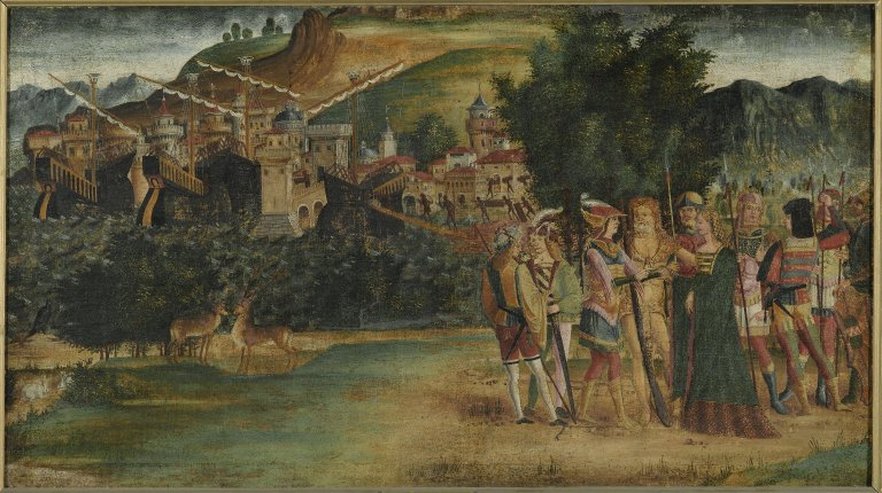MEDIEVAL AND
MODERN SOURCES

The Marriage of Jason and Medea, oil on canvas, North Italian school, 1498 and 1502 (Brooklyn Museum / Wikimedia Commons)
It was only by chance that the story of Jason and the Argonauts survived into the medieval period in one version or another. The texts that survived were those of Ovid and a few Latin forgeries, such as the alleged Trojan War diary of Dares the Phrygian, which claimed to tell the story of the Trojan war from an eyewitness's point of view. The beginning of this work provides a brief discussion of Jason and Pelias and the reason for the Argonauts' trip; however, the actual adventure is cut very short and served only as an introduction to what the author saw as the most important part of the story, Jason's encounter with Laomedon at Troy, presaging the Trojan War.
The chance survival of this text and Ovid's meant that in the medieval period, Jason was remembered for two things: Setting off the events that led to the Trojan War and seducing and abandoning women. All else was forgotten. This would remain the predominant view of Jason until the rediscovery of Apollonius' and Valerius' versions of the story during the Renaissance.
The chance survival of this text and Ovid's meant that in the medieval period, Jason was remembered for two things: Setting off the events that led to the Trojan War and seducing and abandoning women. All else was forgotten. This would remain the predominant view of Jason until the rediscovery of Apollonius' and Valerius' versions of the story during the Renaissance.
THE FIRST VATICAN MYTHOGRAPHER
THE SECOND VATICAN MYTHOGRAPHER
DANTE'S INFERNO
BOCCACCIO'S GENEALOGY OF THE GODS
CHAUCER'S LEGEND OF GOOD WOMEN
GOWER'S CONFESSIO AMANTIS
LYDGATE'S TROY BOOK
LEFÈVRE'S RECUYELL OF THE HISTORYES OF TROY
LEFÈVRE'S HISTORY OF JASON
POMEY'S PANTHEUM
GRILLPARZER'S MEDEA
WILLIAM MORRIS'S THE LIFE AND DEATH OF JASON



